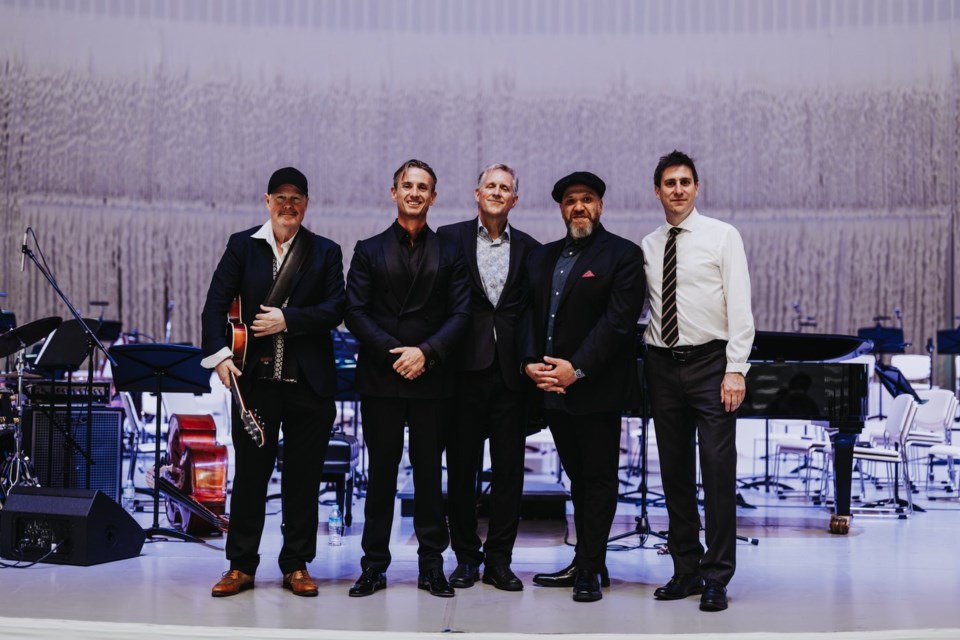OSAKA — Growing up in Budapest, Robi Botos and his father, who was a jazz enthusiast, bonded over Oscar Peterson’s music, which he says they discovered through the contraband of the few albums that made it past the ban on jazz music under Soviet control of Hungary.
“He had such a personality in his music and he had so much to offer,” said Botos, the pianist in the Oscar Peterson Centennial Quartet, which this year is honouring the jazz legend with performances in Canada and abroad, 100 years after he was born.
“But there was also this ability to really connect with people. And if you go to the smallest village, when we talk about jazz piano, they all know who Oscar is and they’re going to call him the greatest.”
Upcoming shows on the tour include a celebration at Toronto’s Massey Hall on Saturday, summer jazz festivals in Rochester, N.Y. and Montreal, and more than two dozen others through to the end of the year.
A standout for the quartet – which includes Winnipeg-bred bassist Mike Downes, Montreal-born drummer Jim Doxas and Swedish guitarist Ulf Wakenius, who played with Peterson's quartet before he died – was last Friday’s performance in Osaka with the National Arts Centre Orchestra, says Botos, who immigrated to Toronto age 20.
At home and abroad, Oscar Peterson's legacy lives on.
Peterson’s appearances between 1953 and 1983 in Japan helped cultivate an enthusiastic fan base. His first appearance in the country was with the “Jazz at the Philharmonic” concert series and he made Tokyo a frequent stop in his touring circuit, even recording the famous "Return to Happiness" live album there in 1983.
Channeling the music of a legendary pianist is a tall order, one that’s made more challenging by Botos' creative impulse to insert his own artistry into Peterson’s music.
Botos says it helps that he got some advice on the matter from Peterson himself. The two met after Botos won first place in the 2004 Montreux Jazz Festival’s solo piano competition. The prize included opening for one of the following year's headliners, who turned out to be Peterson.
"I don't think he ever had opening acts, let alone a young pianist. But he was really beautiful and came and listened to me and his words were beautiful. He kind of gave me the green light to do my thing.”
Botos later became a mentee of Peterson’s and has since built his own reputation as a stalwart of Canadian jazz, winning the TD Grand Jazz Award at the Montreal International Jazz Festival and a Juno Award for Best Jazz Album of the Year in 2016.
Botos and his band managed to find their own footing throughout the concert in Osaka alongside a slimmed down orchestra that focused on the brass section.
The highlight was Peterson's "Hymn to Freedom," a 1962 composition embraced as a musical symbol of the Civil Rights Movement.
The version of "Hymn" performed for this concert was arranged by Downes and orchestrated by Montreal-based composer Chris LaRosa. For the vocal component, the orchestra and quartet were joined by members of Sistema New Brunswick, El Sistema Japan’s Tokyo Children’s Ensemble and Ottawa’s OrKidstra Music Ensemble, all of which provide children from equity-deserving communities the opportunity to create music together.
In this "Hymn," Nelson McDougall hears proof that Peterson’s oeuvre rises above genre, and even above music.
“He was able to communicate, to engage, to connect with audiences around the world,” said McDougall, managing director of NACO.
This report by The Canadian Press was first published June 13, 2025.
Michael Zarathus-Cook is a Toronto-based freelance writer, the chief editor of "Cannopy Magazine," and a medical student at the University of Toronto. The National Arts Centre sponsored his trip to Japan.
Michael Zarathus-Cook, The Canadian Press


